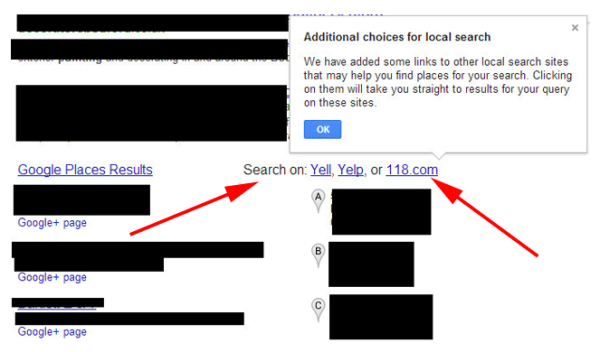New Concessions From Google Seek To Avoid EU Antitrust Penalties
According to Reuters the European Commission (EC) says Google has submitted a new settlement proposal with “further concessions” in its bid to end the antitrust inquiry against the company. If the parties fail to reach agreement the EC has the ability to fine Google a percentage of its global revenues. That penalty could be as […]

That penalty could be as high as $5 billion potentially.
No details of the new proposal were provided by Reuters or the EC. The updated proposal will likely be revealed in short order.
The EC concluded its original antitrust investigation of Google with a report detailing “four areas of concern.” Google was compelled to address those issues in its settlement proposal. Here are the four concerns:
- Vertical search/”search bias” (Google “favoring” its own services vs. rivals)
- Use of third party content (e.g., reviews) as part of Google’s own services (e.g., Places)
- Advertising exclusivity with publishers
- Portability of ad campaigns to competing search engines
Essentially three of the four are already remedied or moot. It’s the first issue (“vertical search”) that is the most contentious and has been the subject of intense lobbying. Google’s proposed remedies to address the first issue included the following:
- Google labeling its own properties as such
- Google agreeing to “prominently show at least three links to rival, non-Google sites that have information relevant to a user’s query”
- Third party verification of Google’s compliance
Although Google’s settlement proposal hasn’t been approved the company has apparently been testing out rival links in its UK local search results. The following is a screenshot from a Webmaster World discussion (via Search Engine Roundtable):
Competitors immediately attacked Google’s initial “rival links” proposal, which had been negotiated with the EC, as inadequate. They argued, if enacted, it would do nothing to address Google’s alleged “abuse of market power.”
The intense lobbying of FairSearch.org and SearchNeutrality.org swayed the EC, which issued a statement in May asserting that additional Google concessions would be necessary to avoid fines and penalties. This new proposal theoretically offers those additional concessions.
Anti-Google lobbying groups have yet to see the company’s modified settlement proposal. However they’re seeking a second “market test.”
Reuters quotes FairSearch lawyer Thomas Vinje, who issued a statement in response to the news of the second proposal: “Given the failure of Google to make a serious offer last time around, we believe it is necessary that customers and competitors of Google be consulted in a full, second market test.”
Contributing authors are invited to create content for Search Engine Land and are chosen for their expertise and contribution to the search community. Our contributors work under the oversight of the editorial staff and contributions are checked for quality and relevance to our readers. The opinions they express are their own.
Related stories
